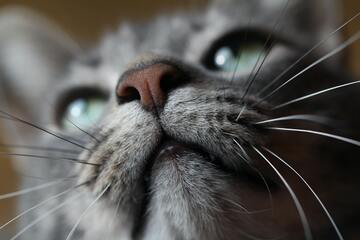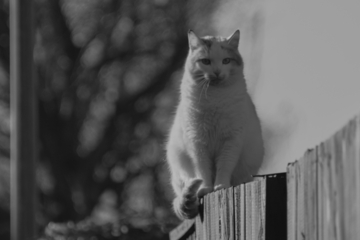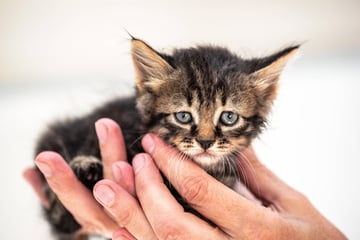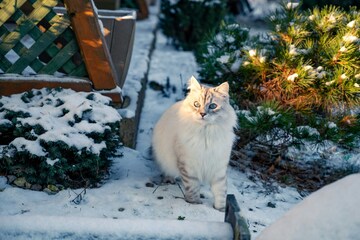Why do cats drool? Is it normal for cats to drool?
Have you noticed your cat drooling a lot lately? These tiny little drippity-drops don't have to be dramatic, there's a reason for them, and in most likelihood you have nothing to worry about.
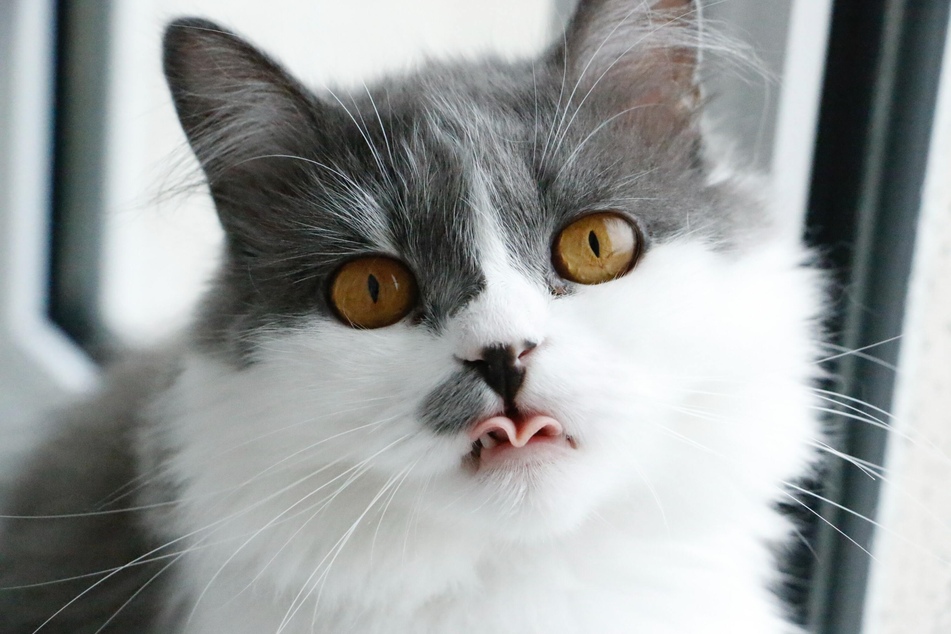
It is not uncommon for cats to drool from time to time, and in most cases it's completely harmless. However, if the drooling is accompanied by other symptoms, it could point to a health problem - something that needs to be checked out. Here's how you can know if your feline friend just happens to be the slobbery type, or there's something more serious going on. Why do cats drool, is it normal? Let's find out.
Is cat drooling normal?
Yes, it is perfectly normal for your cat to drool from time to time, and not something to be too concerned about. If this happens, you just simply need to establish why it is, address that issue if it is a concern, and move on. Don't get yourself in a tizz if you see your cat drooling - it might just be hungry, or insanely relaxed and chilled out.
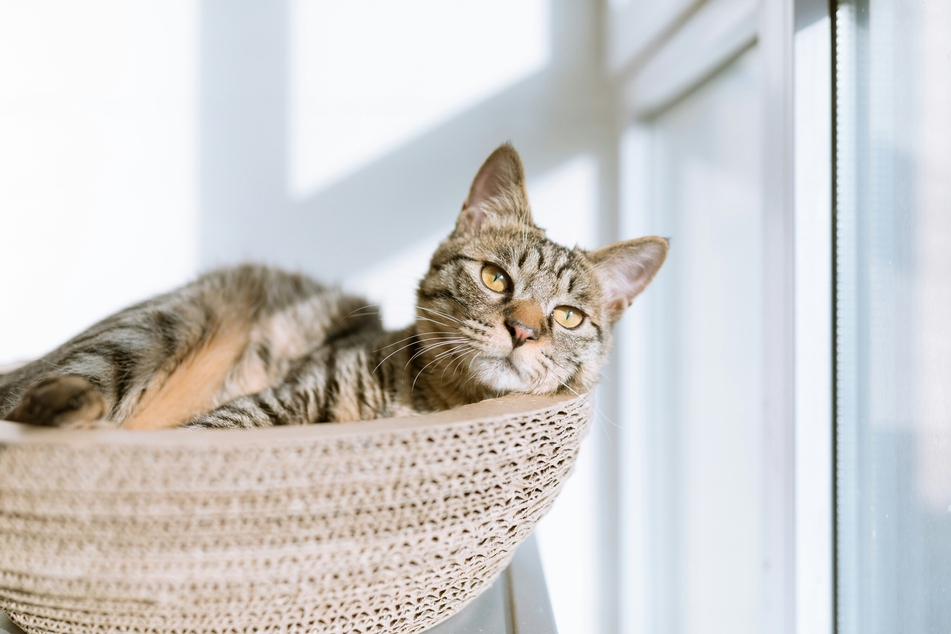
Why do cats drool: Two reasons
There are two main reasons which can simply explain why your caring cat might be drooling: Relaxation or sickness. While the former is far more common and innately harmless, if the latter explains your cat's behavior then something desperately needs to be done.
If your kitty has been drooling, you should first identify the reason why and then take action. That action will be determined by whether your cat fits into the latter of these two categories:
It's normal for cats to drool when they're relaxed
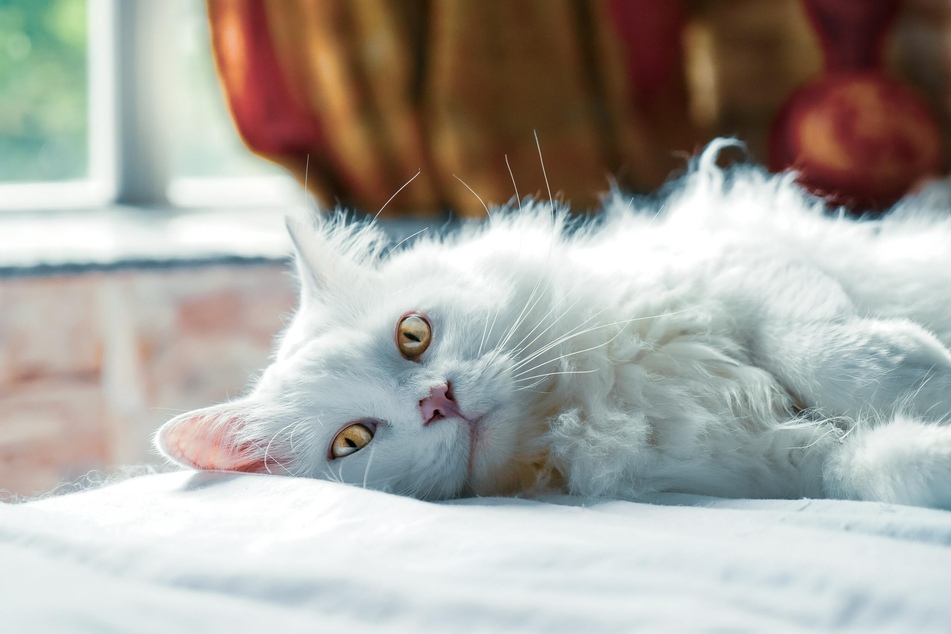
If you have ever been in a situation where your fluffy pet is snoozing on your lap when, suddenly, you notice a wet spot underneath its head, you likely have nothing to worry about. Cats typically drool when they're feeling particularly relaxed and chilled out, especially during cuddling session that make them literally drool with pleasure.
This frequently happens during their many catnaps. Saliva production increases as the fur ball gets comfortable and slips into a state of complete relaxation and half-sleep. So there's no need to fret over a bit of leakage here and there - on the contrary, it's a sign that your cat is in a good mood.
In addition, cats sometimes salivate and drool when there's food around, or they know that they are about to get a particularly tasty meal. Again, if this is the case then you really have nothing to worry about and can probably just relax and try not to worry. Your kitty is happy and content, so you should be happy and content as well.
Don't worry: Positive scenarios like the ones we just described are the most likely and most common. Only worry about your cat's drooling if it is accompanied by other more sinister symptoms.
Sickness and dental issues can cause cat drooling
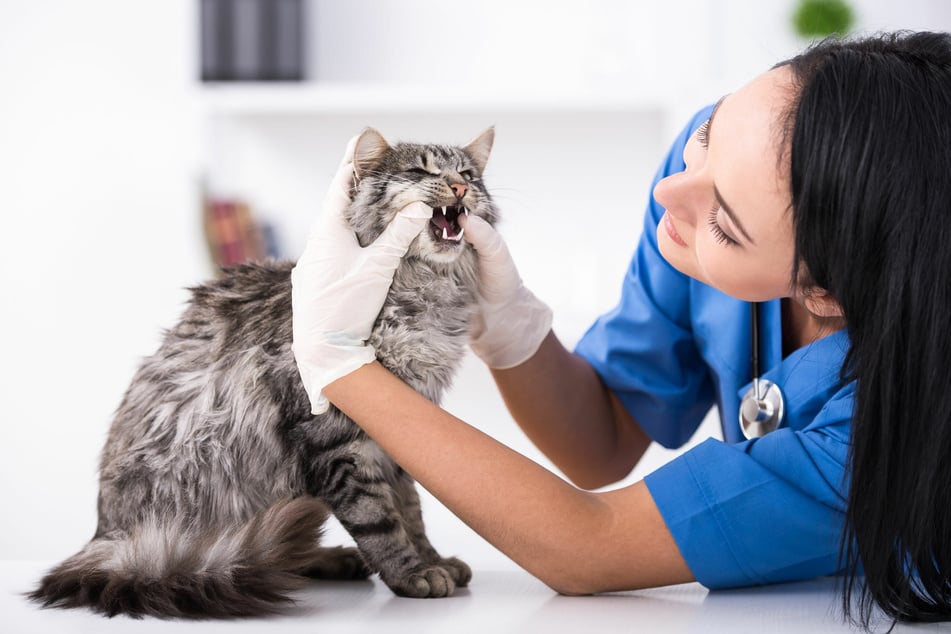
If a cat seems to be slobbering all the time, however, and is experiencing other symptoms, it might be time for its owners to check for potential problems. The animal might be suffering from an undiagnosed condition, might have dental issues, or even a painful and damaging oral disease.
These are the most common health-based issues that can cause an increase in salivation and drooling
Dental diseases: Swollen gums, tooth tartar, dental problems in general, missing teeth, and mouth wounds can be a possible reason for constant drooling. In addition, discoloration of the gums, bleeding, or discomfort when eating are all signs of oral pain. Dental diseases and medical issues in the jaw area should not be underestimated, as the bacteria that cause swelling in the mouth that can then spread to other organs and worse illnesses later on.
Cat flu: Drooling can also mean that your pet has a case of the kitty flu. This typically involves other symptoms, just like with humans. A kitty with cat flu will cough and sneeze a lot, its eyes will constantly water, and it will lose its appetite. Excessive sleeping can be tricky to spot in cats, but a visible crust around the nose and eyes, as well as difficult breathing and swallowing, are the more obvious signs.
Poisoning: A lot of dribble could also point to poisoning. If a cat has ingested a toxic substance, this is often the first noticeable symptom. Drooling becomes an important alarm signal when your feline has eaten the wrong kind of food, a poisonous plant, or unsuitable medication, so be sure to act quickly!
Medication: Sometimes, intensive salivation is actually the symptom of the treatment, not the disease. Certain types of medication, especially the kind that has to be administered orally, can cause drooling in cats. Even ear or eye drops can sometimes have this side effect.
Ultimately, your cat's drooling is not likely to be a sign of something life-threatening. However, if any of these issues seem likely, then you need to seek out a veterinarian as soon as possible.
What to do when your cat drools
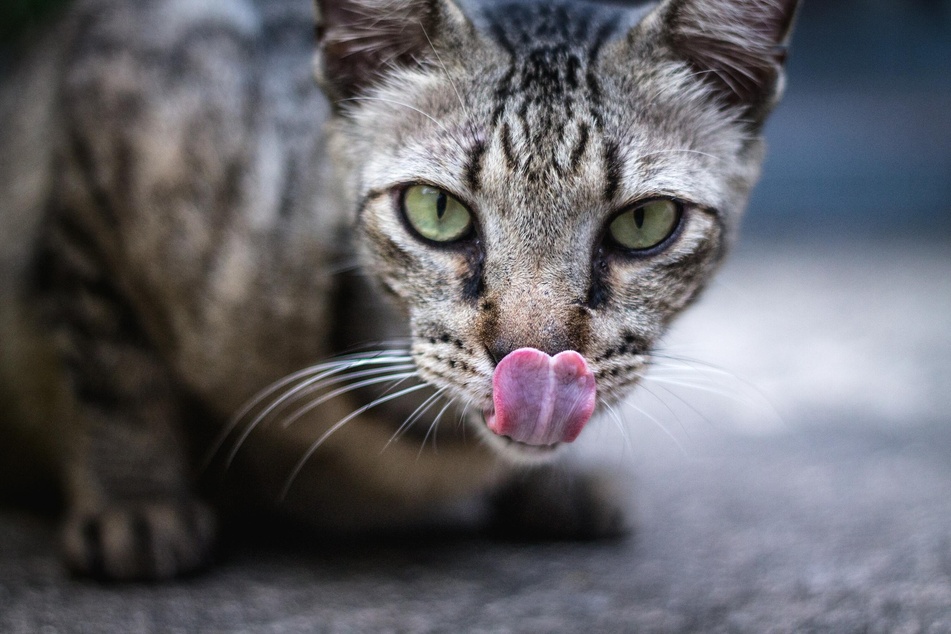
Ultimately, if your cat is drooling due to an illness or health issue, you need to go to the vet as soon as possible. Most of the time, you won't need to give your cat's slobbering a second thought, though, as it is probably just floating away in a state of complete relaxation.
Constant vigilance is required when it comes to all aspects of cat health, however. This goes especially when the drooling appears alongside other signs that something might be wrong. Whatever the situation, if there's any suspicion at all of a health issue, a visit to the vet's office can't hurt. It's better to be safe than sorry.
There are a few great products you can try out to help reduce the damage done by a drooling cat:
- Get your cat a special toothbrush to help support its dental hygiene - make sure to get your vet's permission first.
- If your cat drools during a meal, get it a specialized cat bib!
- Use a calming collar to try and keep your cat relaxed, if it drools when anxious.
Ultimately, drooling is rarely something to worry about in cats. It's a pretty normal behavior and something you can deal with quite easily. Get your cat checked out, but don't worry, it's probably nothing!
Cover photo: Unsplash/Miron Cristina
